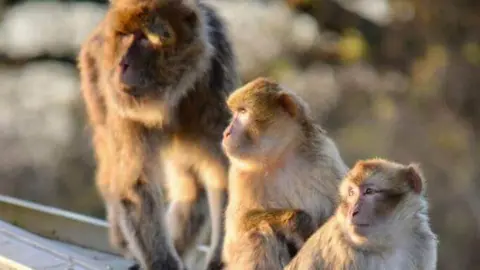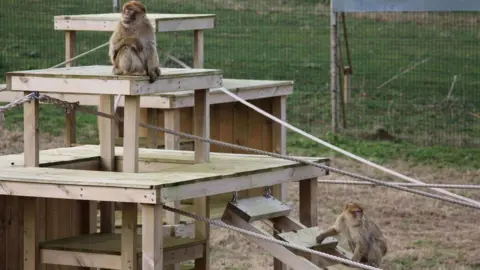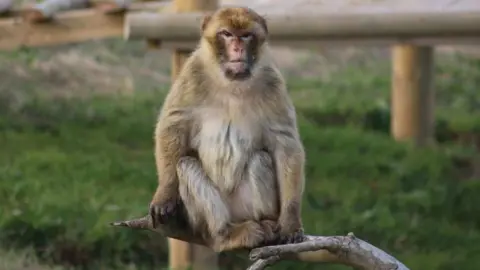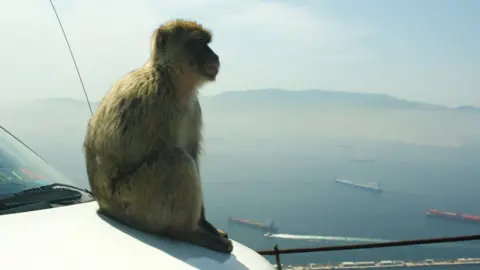Jimmy's Farm Ipswich: Seven rescue monkeys settle in to new home
 Jimmy's Farm
Jimmy's FarmSeven monkeys that were seized by customs officials have settled in their new home.
The Barbary Macaques arrived at Jimmy's Farm in Suffolk, a few weeks ago after Brexit and the pandemic delayed their arrival by a year.
The monkeys were rescued by the AAP Foundation which helps animals that have been smuggled from the wild for people to keep as pets.
Farm manager Stevie Sheppard said the group had "settled really well".
 Jimmy's Farm
Jimmy's FarmThe farm, at Wherstead near Ipswich, is a working farm and visitor attraction owned by television presenter Jimmy Doherty, which he originally set up in 2002 to try to preserve the Essex pig breed.
It has since expanded to become a wildlife park featuring wallabies, capybara, tapir and lemur and many other species.
It is the second group of Barbary Macaques the farm has taken in, with the first group arriving "just before Brexit came into place", Mr Sheppard said.
"Once Brexit happened we weren't able to get the second group in the country," he said.
"Everything changed."
 Jimmy's Farm
Jimmy's FarmThe group consists of five females and two males.
"One of the males was taken from the wild and raised as a pet for many years before he turned on his owner," Mr Sheppard said.
"We have been lucky to make a family out of these seven.
"They are showing all the natural behaviours we want them to."

Barbary macaque

- They are the only non-human primates found in Europe
- Most famously found in Gibraltar, but the majority live in Morocco and northern Algeria
- There have been reports of Gibraltar's Barbary macaques behaving aggressively around tourists
- They are also known as Barbary apes due to their lack of a tail, but they are actually Old World monkeys
- They live in troops of as many as 100 members and the males help care for the young
- The population is decreasing and they are listed as endangered by the International Union for Conservation and Nature
- In 2016, the primates gained the highest level of species protection at the Cites meeting in Johannesburg

Mr Sheppard said the new "family" would be a "really good breeding group" as they all come from different backgrounds.
"They are endangered in the wild so we are hoping we can breed them in the future," he said.

Find BBC News: East of England on Facebook, Instagram and Twitter. If you have a story suggestion please email [email protected]
